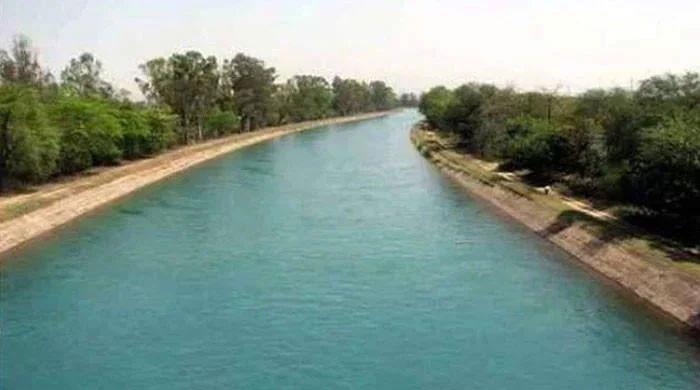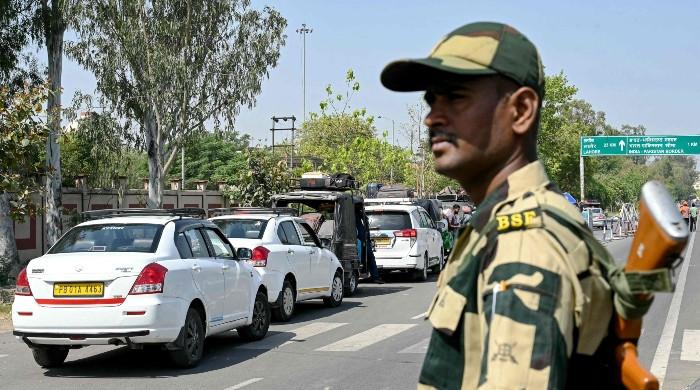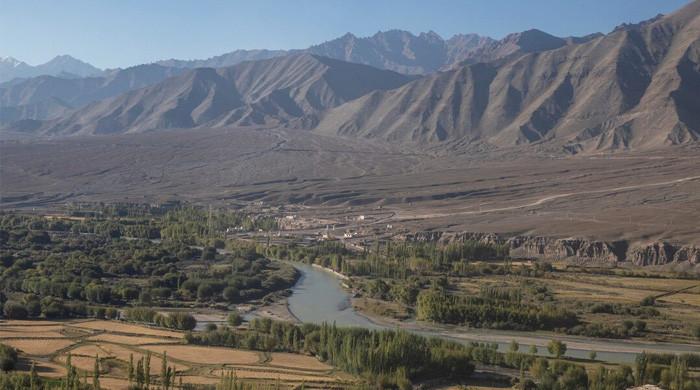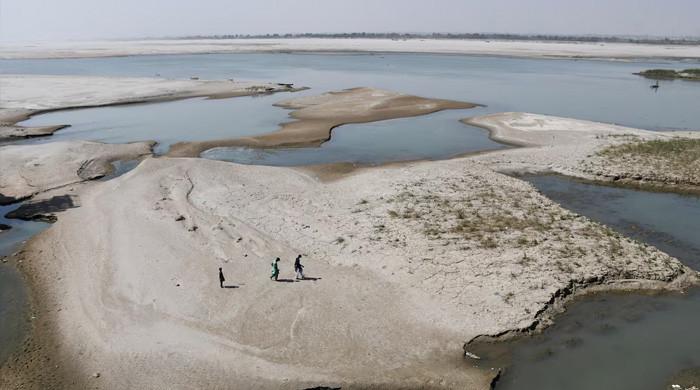How ready is Pakistan to face a once in a century crisis?
The global debt was USD 226 trillion in 2020, and this is the biggest one-year increase since World War II
June 25, 2022
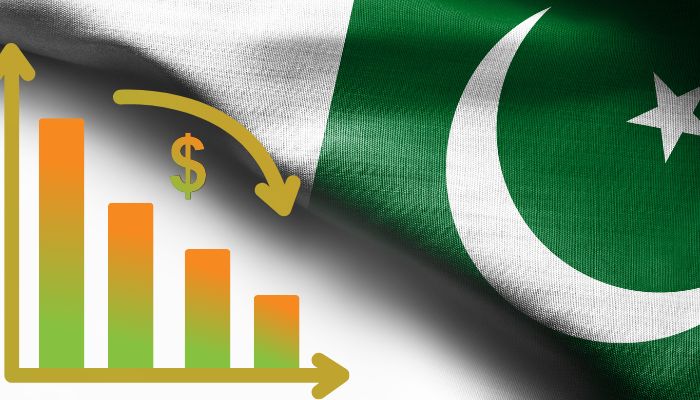
IMF terms the present global debt level (government and private sector) of over USD 330 trillion as dangerously high. The global debt was USD 226 trillion in 2020, and this is the biggest one-year increase since World War II. Corona and Ukraine are the major causes, and the situation continues to deteriorate.
The US Defense Department has announced the largest USD 1 billion package for Ukraine's heavy armament. NATO heads say the Ukraine war may continue for years. A G7 Summit is being hosted by Germany; a NATO summit is scheduled as well, and the EU is moving towards a blockade of Russian oil and gas. So far, over 7,000 sanctions have been imposed on Russia. Amidst all this, Chinese President Xi Jingping called the Russian President on Tuesday to extend full support to Russian "sovereignty and security". The Ukraine crisis seems far from over.
The world was already in the worst state to face an intercontinental conflict after corona. The IMF and World Bank now estimate that 60% of low-income countries are at serious risk of defaulting on debt repayment. According to a recent Bloomberg report, Pakistan is among the top 15 countries as per the report. The World Bank has cut its growth forecast from 4% to 2.9% for 2022 and warned of 1970s-like stagflation.
Shamshad Ahmad, Pakistan’s ex-foreign secretary, believes the world is in upheaval again due to the long-standing US-Russian rivalry and the pressure the West is exerting on Russia by pushing NATO closer to its borders. Dr Maleeha Lodhi, Pakistan's ex-Ambassador to the USA and UK, believes that the international economic environment is more fraught today compared to past challenges.
The major power blocs continue to take jibes at each other. Last week, 47 Western bloc countries signed a joint statement at the UN Human Rights Council expressing grave concern about the human rights situation in the Xinjiang Uyghur Autonomous Region. State Department remains perplexed at the 35 countries, including China, and South Asian and Middle Eastern countries, who abstained at the UN from condemning Russian aggression in Ukraine.
Although the US government has reduced its fiscal deficit from a record USD 3.1 trillion in 2021 to USD 1.1 trillion, commodity price hikes have put unprecedented pressure on the US economy. Inflation in the United States is approaching 9%, a 40-year high, oil prices have surpassed a record USD 5 per gallon, interest rates rose by 0.75% last week (the highest since 1994), and the US bond market is having its worst year in history. This brings President Biden to the Middle East next month to help increase oil production and lower prices and to convince the countries who abstained from Russian aggression to take decisive positions.
How prepared is Pakistan to face this once-in-a-century crisis? Unfortunately, all kinds of negatives and concerns come up in response. This includes a change of government and extreme political acrimony; an impending change of leadership at a premier institution; the toughest IMF conditions among 14 loan packages since 1980; a budget deficit approaching 10%; and extreme inflationary pressure on the poor, lower, and middle classes.One of Pakistan’s leading industrialists said last week that the country faces default as it is short of Rs three trillion in tax revenue and USD 15-20 billion in foreign exchange. Unfortunately, the disharmony among political parties and other stakeholders in the last few years due to overall political management puts us in the worst condition to handle this global crisis.
On the external front, Pakistan was still reeling from the end of a 20-year Afghan war, relations with the new Biden Administration were strained, and American attention had shifted to India in South Asia, the Middle East, and the Asia Pacific power struggle with China.In the midst of the ever-expanding Israel-India US axis, the United States is increasing pressure on Pakistan to establish diplomatic ties with Israel. being a long standing close ally of China increases its difficulties. Some of the 35 countries that didn't vote in the UN vote on Russian aggression benefited from sharp increases in oil prices, while others, like India, benefited from buying Russian oil at a discount.Pakistan has so far gained the least and is in a state of policy and action freeze.
Shamshad Ahmad, ex-Foreign Secretary, believes Pakistan did the right thing to abstain from being a party in the Ukraine crisis. He added that when the global powers advise Pakistan and India to conduct dialogue over Kashmir, why can’t they settle their own disputes like Ukraine? He expressed severe reservations about the UN's role in resolving conflicts and restoring peace. Regarding Pakistan's situation, Mr Shamshad said we must desist from fighting anyone’s war and focus on internal economic development through self-reliance. Mr Shamshad expressed reservations at the ouster of a sitting government in a tense and fragile global order and advocated immediate elections to restore political stability. He concluded by saying that the country needs a healing process in which everyone should play their due role.
Dr Maleeha Lodhi, Pakistan's ex-Ambassador to the USA and UK, shared that Pakistan has confronted and overcome even more imposing challenges in the past. She adds, "What is needed today is political unity and the will to address the structural economic problems to avoid financial crises in the future; otherwise Pakistan will lurch from crisis to crisis that obviously has a bearing on the country's national stability and security."
She added that Pakistan's establishment and the government are well aware of the challenges. Given the magnitude of local and global challenges, it is imperative that political and public consensus be forged to deal with them. She added that partisan interests should be set aside and the baseless conspiracy claims being made by the former ruling party should end.
Whereas we may have one of the best armies and nuclear arsenal, experienced politicians and successful businessmen, the reality is that if our friendly countries pull out their deposits from the State Bank of Pakistan and other loans, Pakistan will default on its external financial commitments. Our nuclear and other state-owned assets are at unprecedented risk and global sharks are eyeing them for a long time.
We have brought the internal power tussle to a point where people at the top and in the streets are both groping for solutions. All at the helm of affairs need to try to become part of the solution rather than the problem. One-sided legislation without genuine debate in assemblies serves no purpose. Frantic press conferences with accusations and threats from all political parties should stop. The threats of long marches, excessive force to overcome political dissent, and abandonment of assemblies should be reconsidered. When politicians lower the temperature, social media users may engage in more productive debate rather than mudslinging.In this tense global power game, we should avoid dragging important global players into local politics beyond a reasonable limit. War, pandemic or none, if we don’t set and adhere to reasonable rules of the power game in Pakistan, we will not be able to achieve a self-reliant and honourable polity. The least all stake holders can do is to get into a huddle and settle a short-to-medium framework to resolve political and economic issues and redeem hope among the masses. An enabling environment is direly needed where the "soft power" of the Pakistani people can deliver a self-reliant and confident Pakistan.




